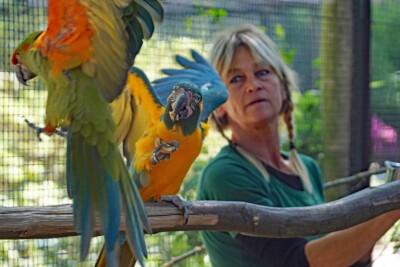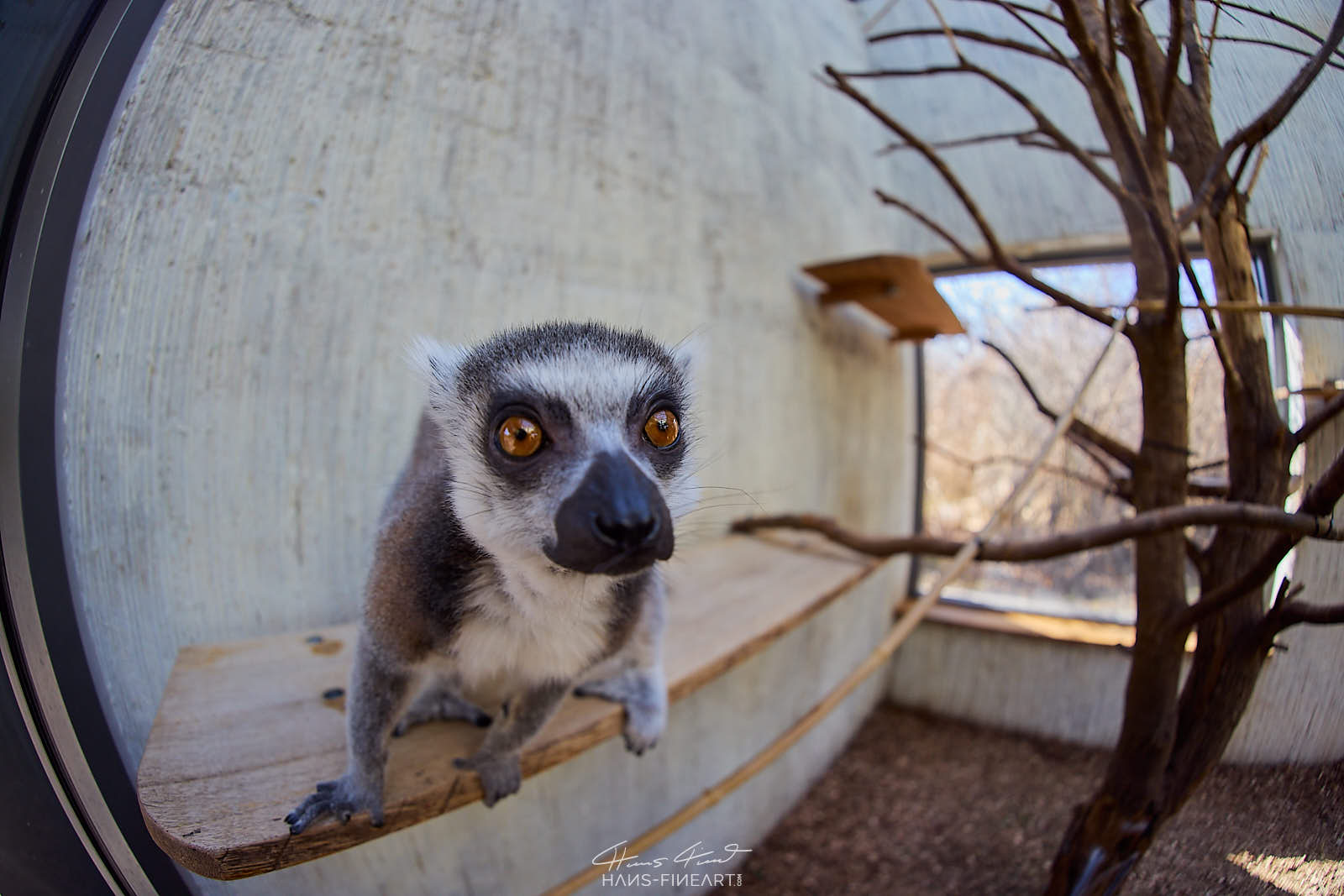Species conservation with macaws at Dresden Zoo
Species protection | 31 May 2022

Today is World Parrot Day, and to celebrate, we want to put our macaws centre stage and highlight our ongoing commitment to conserving the macaw species in our collection.
In the past, we have kept and exhibited a wide range of different species; last year, however, we made some changes to our stock of these large South American parrots. We are now focusing on one flock of a single species, as this is more in keeping with the birds’ natural behaviour and indeed the behaviour of parrots in general.
We have chosen the red-fronted macaw, a small species from the arid thornbush and cactus savannahs of central Bolivia. This species is critically endangered, with the International Union for Conservation of Nature (IUCN) reporting a population of less than 300 adults in the wild. The European Association of Zoos and Aquaria (EAZA) has therefore identified it as a priority species for Europe going forwards. At present, only three other zoos in Germany keep this rare species. We also have a pair of blue-throated macaws in the large aviary. With a population of only 300 adults, this parrot species is also under threat of extinction. Unlike red-fronted macaws, blue-throated macaws inhabit the more tropical, humid, seasonally flooded savannahs of northern Bolivia. This species has also been identified by EAZA as a priority for a European breeding programme and is currently kept by eight zoos in Germany.
Current estimates suggest that about one third of the 350 known parrot species are endangered in the wild. To highlight this situation, the World Parrot Trust launched World Parrot Day in 2004. The decline is mostly driven by human activity, with habitat destruction and the wildlife trade being the key factors.
We have therefore decided to extend our species conservation commitment to these bird species, too. We are partnering with the Asociación Armonía, which is dedicated to the conservation of bird life in Bolivia. The Asociación Armonía is an NGO (non-governmental organisation) that works with local and indigenous populations to initiate and implement wildlife and habitat conservation programmes throughout the country. Their stated goal is to achieve a harmonious balance (in Spanish, “armonía” means harmony) between human beings and endangered species and habitats.
The organisation undertakes classic field work such as the installation of nest boxes and brood boxes, research, education and awareness campaigns in the media and schools, and developing alternative sources of income for the population, for example to stop wildlife trafficking. Special attention is paid to ecotourism. Money from foreign tourists can be used to support the creation and preservation of large natural habitats, which serve as havens and breeding grounds, including for red-fronted and blue-throated macaws.
In addition to 12 other projects, the Asociación Armonía is managing a red-fronted macaw conservation project in the Friends of Frente Roja Nature Reserve and another for blue-throated macaws in the Friends of Barba Azul Nature Reserve; our goal is to provide them with ongoing financial support from our Conservation Euro contributions.
